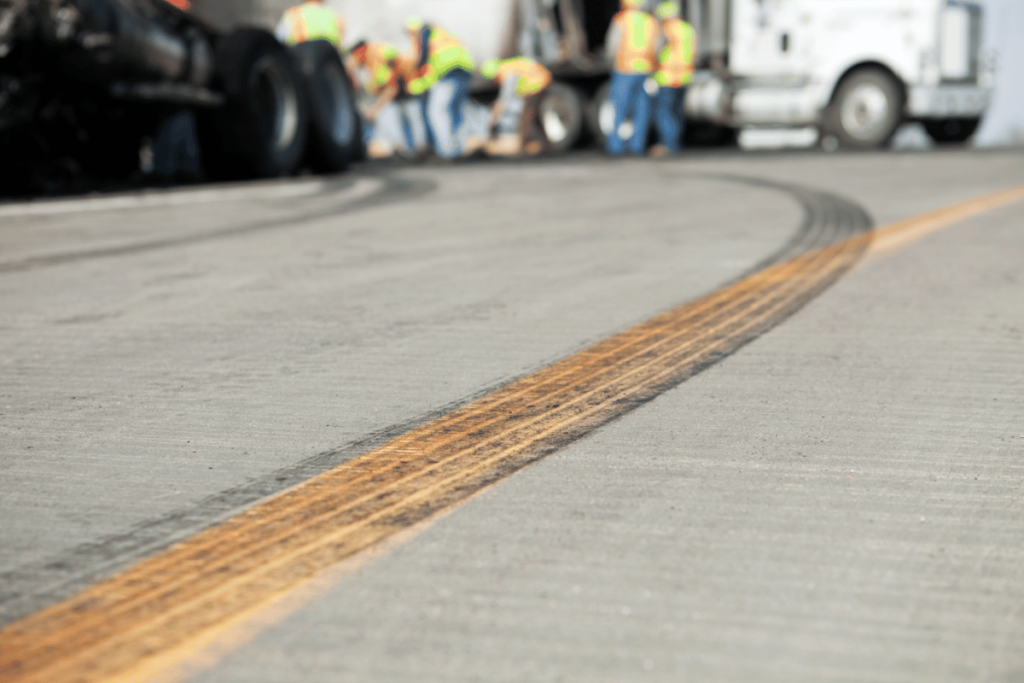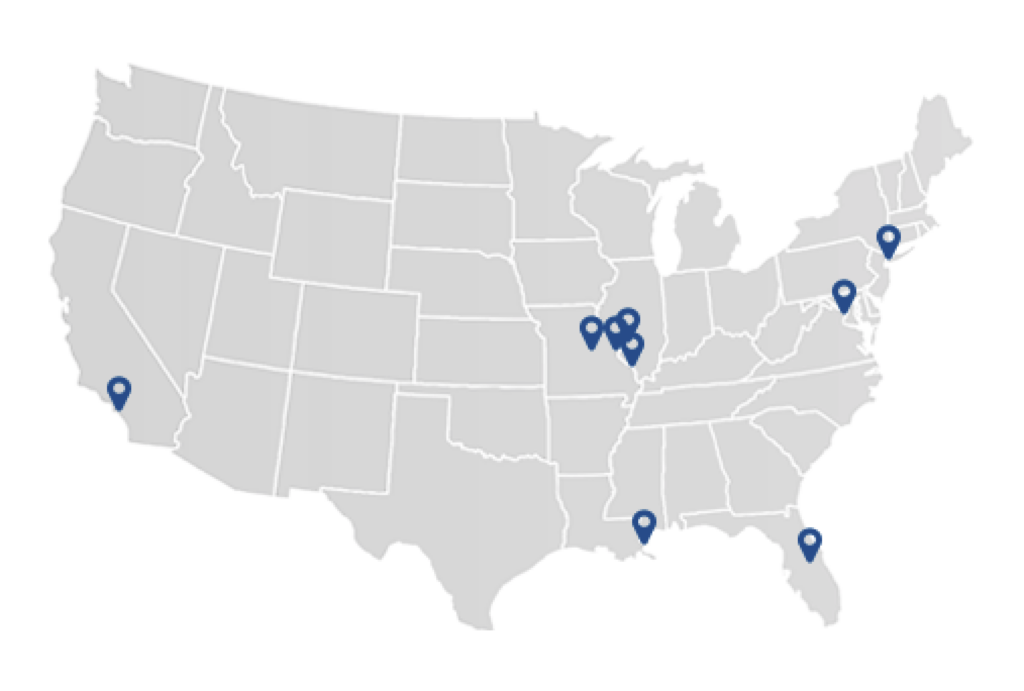Truck Accident Lawyers
Representing Clients Injured By Semi-Truck Accidents

Home » Personal Injury » Truck Accident Lawyers
- Content last modified:
Trucks and commercial vehicles are significantly larger, and more dangerous to you and your family on the highway. They can cause massive, multi-car accidents, which results in catastrophic injuries and death. After an accident, how will you pay your household, medical bills and future life care?
Many of the serious injuries that occur in trucking accidents result in life-altering surgeries and can cause permanent and severe disability.
Survival and wrongful death damages are available to families who have lost a loved one in a tractor-trailer accident.
Our results are meaningful and represent our fight for you and your family. Bob Marcus and our team of attorneys is passionate and will personally work with you and your family to meet all your needs.
At The Gori Law Firm, we confidently handle truck accident cases for clients throughout Illinois, Missouri and the Midwest. Give us a call today at 618-659-9833 for a no-cost consultation. You can also reach us online.
What Caused The Accident That Injured You?
Due to the size of a semi-truck, a crash involving this type of vehicle can result in serious injuries and death. Tractor-trailer accidents have many causes, including:
- Driver negligence (speeding, reckless driving, falling asleep at the wheel)
- Drivers driving more hours than allowed by law
- Failure to properly maintain the truck
- Mechanical failure of the truck
- Overloaded cargo
- Unbalanced cargo
Holding Responsible Parties Accountable
Our firm is committed to getting to the bottom of your trucking accident case to determine who is responsible for your injuries. We can potentially hold several parties responsible based upon the details of your individual case, including the trucking company, the manufacturer of the truck, the truck driver and/or the distributor who loaded the truck.
We will work with you to determine adequate compensation, and pursue that amount with the responsible parties and their insurance companies. Our attorneys can take your case to court, and argue it in front of a judge and jury if the negligent party does not wish to negotiate or settle.
Contact Our Firm
If you have been injured or lost a loved one in a truck accident, you have rights and options for seeking compensation for your losses. At The Gori Law Firm, our personal injury lawyers have 40 years of experience handling a wide range of motor vehicle accident cases. We strive to help clients understand their rights and pursue compensation for lost wages, medical expenses, and pain and suffering.
Call to schedule a free initial consultation at 618-659-9833 or toll free at 618-659-9833. All cases are taken on a contingency basis.
Truck Accident Immediate Response Team
You and your family are victims and deserve to know how and why this tragedy occurred. However, the sad truth is that trucking companies and motor carriers have attorneys on standby to go to an accident scene as soon as their dispatcher learns of an accident.
When you contact us, we will assess your case and provide an immediate response. This team includes attorney Bob Marcus, a private investigator, and an accident reconstructionist to download the information on the truck’s black box.
We take immediate steps to protect you and your family including:
- Locating and interviewing eyewitnesses and obtain statements
- Finding the truck, trailer, and vehicles involved and put all parties on notice, via a court order if necessary, not to touch or alter any vehicle or piece of equipment
- Photographing, measuring, surveying, videotaping and securing all evidence
- Ensuring that driver and company information is not spoiled
- Working with law enforcement on your behalf in their investigation of the accident
- Facilitating the processing of medical bills by the responsible party
- Facilitating medical treatment and caregiver services because the magnitude of physical and mental injuries can be overwhelming
Who Is At Fault In A Truck Accident?
When you and your family are in an accident with a truck or commercial vehicle, you need a trucking lawyer that knows the industry. Federal regulations, commercial vehicle manuals, and special safety rules apply to truck drivers, motor carriers, brokers/logistics companies, and shippers.
The life-changing devastation that truck accidents cause is immeasurable for a family. At The Gori Law Firm, our trucking lawyers have the extensive experience, and eight-figure results needed to hold the drivers and trucking companies responsible for your accident accountable.
The Complex Scenario Of Determining Who Is At Fault In A Truck Accident
Many times, truck accidents involve multiple cars and trucks. However, in a collision that involves a semi-truck, figuring out who is responsible can quickly become complicated. The Federal Motor Carrier Safety Administration establishes regulations and rules which govern drivers, motor carriers and related companies. There are numerous potential defendants:
- The driver of the truck – Distracted driving, speeding, fatigue, substance abuse, and lack of training all contribute to negligent driving. Drivers who own their trucks are called owner/operators.
- Agent of the driver – Staffing agencies are used as a layer of protection and separation for motor carriers.
- Motor carrier – The Department of Transportation authorized company that is hired to transport goods. Often, they fail to perform background checks and fail to abide by the federal regulations in operating their fleet. Many motor carriers do not employ their drivers, so independent contractor issues are involved in every case.
- Broker or logistics company – A “middle man” company that arranges the transportation of goods between the shipper and carrier. Shippers use these companies to insulate themselves from liability. They may fail to adequately research and investigate quality motor carriers which puts dangerous drivers on the road.
- Shipper – The contracting company that owns and/or ships the goods and hires the broker, motor carrier and driver.
- Owner of the tractor or trailer – Mechanical failures, trailer separation, tire wear, and defective brakes are all-too-common in trucking accidents and the owner of the equipment may be responsible.
Hold The Right People Responsible For Your Accident
These companies often maximize profits and cut costs at the expense of safety. That is why you need an experienced trucking attorney to immediately and thoroughly investigate every facet of your accident, identify all the parties who are responsible, and to recover the compensation to which you and your family may be entitled.
Contact an attorney at The Gori Law Firm to assess your claim. We are available via email or phone call locally in Edwardsville, Illinois, 618-659-9833 or toll-free at 618-659-9833.
Contact Us Today
Get your free case review 24 hours a day.
Fields marked with an * are required
CASE RESULTS











